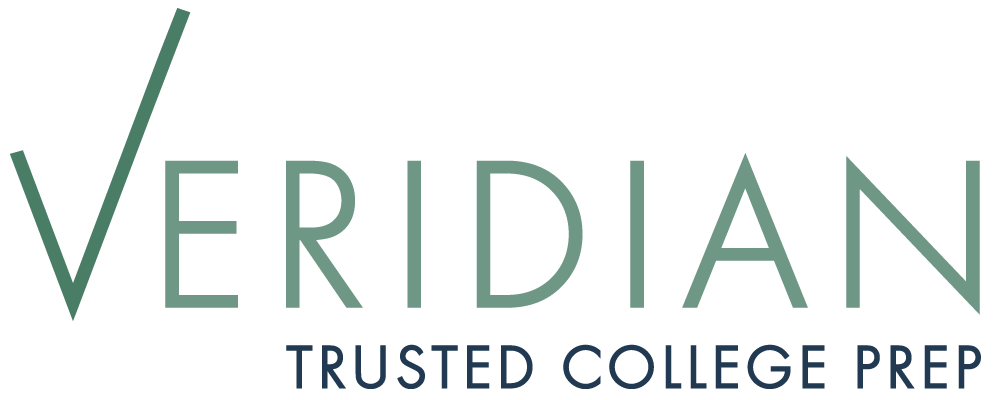Real College Essays That Work 1: Princeton
To launch my Real College Essays That Work, I wanted to include this one because it serves as great example of why you can simply ignore the Common Application prompts and write the college essay that you want - one that truly reflects who you are in all your quirky splendor. In fact, the last Common App prompt is Write Anything You Want!
When I first brainstormed with this student (and her mom), they told me about this student’s love of folding clothing (and they didn’t even know about Marie Kondo!) But they wondered, “how can you write an essay about folding clothes?” The essay couldn’t be about folding clothes, it had to be about her. Folding was the topic - the unifying thread (sorry about the bad pun!) - but she needed a main point.* Indeed, the first drafts of this essay were way too much about folding and not enough about the student and what “folding” meant to her, represented…. However, with some additional probing and after multiple drafts, she got to the crux of her story and wrote a magnificent essay - one of my favorites.
*Read our post about college essays topic vs. main point.
Student attends Princeton University (accepted Early Action)
Also accepted to Boston College, Duke, UVA, Yale, regular decision
Folding My Life
[her title, but titles are not required and I don’t usually recommend them. Here, however, it adds a bit of intrigue before you begin reading. You can’t literally “fold” a life. So it makes the reader wonder a bit before launching in: “Where is she going to go with this?”
It's Sunday afternoon and I'm perched on my pale pink comforter. I take one sleeve between my fingers and fold it against my shirt's back with a practical pull. Then I fold the other sleeve, editing the lines against my bed to a familiar satisfaction. I tuck the back under with a final fold, then smile: shirt complete. Frilly blouses, stiff overalls, billowing parachute pants—if you can dream it, I can fold it.
My penchant for folding doesn't have an exciting origin story. I wasn't bitten by a radioactive spider in my laundry room or given an award for my napkin swan. I was in middle school when, with a ritualistic coming-of-age flourish, I started folding solo around the same time I moved on from Disney Channel.
At first my folded shirts had more wrinkles than if I had crumpled them into balls and stuffed them into my overflowing dresser. Luckily, my frequent outfit changes and loads of laundry from soccer practice grass stains and marinara sauce disasters ensured that I got plenty of practice folding. After several weeks, I was producing department-store-worthy folded shirts in just six seconds. (Yes, I've actually timed it.)
Of course, folding is not just about cotton t-shirts. As I destroyed my closet each morning before school, agonizing over what to wear, I developed a method for every situation: traditional folds for drawers and creative solutions for more challenging articles. I even asked my dad, a Lieutenant Colonel and my laundry sensei, to teach me the military method of rolling to save space so I could pack suitcases with enough clothes for any spontaneous adventures (and for my sister, who always seems to borrow my clothes). Too controversial for conservative folders, the roll lets me pack days in advance without a wrinkle to show.
But folding extends beyond hot, fresh laundry. The toned, meticulous muscle I've built over countless Sundays on my bed is versatile. A friend handed me a knot to untie during a physics lab, and rather than picking mindlessly at it until it became even more of a knotted mess, I found myself assessing the knot from a folder's perspective. I evaluated the knot like I would a complicated, flow-y shirt and adapted my technique until the rope relaxed out straight. No longer merely a folder, I have become a problem solver.
Just as I carefully fold one sleeve and then the other, I place my golf ball on the tee, consider wind direction and hole distance, reach all my grip checkpoints, and line up my feet shoulder-width apart. Well-versed in my swing's form from my diligence on the driving range, I take my shot and watch the ball soar against the bright sky, knowing that my systematic, yet flexible approach has improved my game. In Italian class, my folding muscle helps me dissect the intricacies of a new tense and interpret dense readings as foreign seams and pleats.
I've also learned that not everything should be folded. Dresses should be put on hangers, not in drawers, so they can flow freely. When I speak Italian, the hours of targeted "folding practice" I've spent internalizing syntax and conjugations let me talk freely, navigating the peaks and troughs of my expressions with intuition and creativity. I paddle board to appreciate the water's serenity, take a breath from my procedures, and let my mind wander as my board drifts with the changing current. My folding skills undoubtedly enable me to think algorithmically, but they also help me appreciate the freedom and spontaneity of all the flowy-dress moments.
Life comes without an instruction manual, but through practice and precision, I can create a solid approach to handle what doesn't unfold as planned. I don't mean to brag, but I might be the world's best folder. I can fold anything if I just take it one sleeve at a time.

